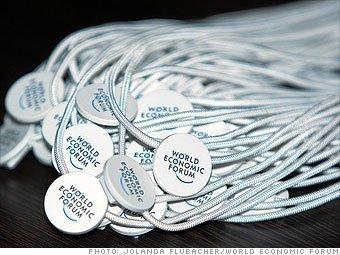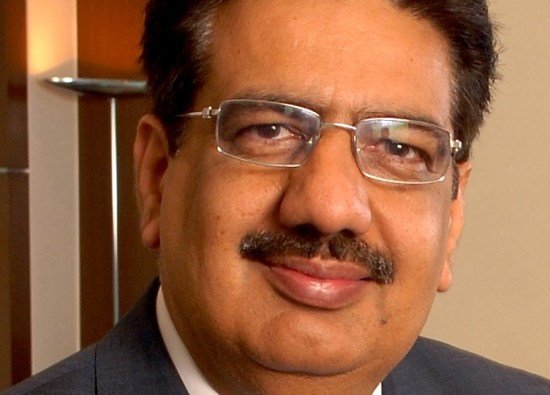Why Davos was worth the trip

There was a whole lot of talk at the World Economic Forum’s annual meeting. But how much of it will turn into meaningful action?
When I arrived in Davos, Switzerland, last Tuesday for my fourth WorldEconomic Forum annual meeting, I found myself asking an odd question: What am I doing here?
As described in a previous post, I kept thinking about the investment made in the 5-day event — including the cost in time to the 2,500 influential political and business leaders, academicians and social entrepreneurs in attendance.
I was also concerned about whether the hundreds of formal sessions and informal conversations around pressing global issues not only affected people’s thinking but also resulted in concrete action.
There was certainly plenty to think about during the week. The mood in Davos was a mix of hope and hazard, with the recent success story of the emerging BRIC economies counterbalanced by concerns about the growing risks of an increasingly volatile world. Through hallway buzz and the “trending” of Twitter posts, you got a sense of which subjects are likely to shape global policy debates in the coming year:
The theme of the breakdown of a global institutional framework, as a way to tackle complex problems, pervaded the conference. Economist Nouriel Roubini summed it up well: with the G20 group of nations in disarray and the G7 obsolete, it’s now a G0 world.
One of the complex problems is terrorism, and this topic entered the spotlight with the appearance of Russian President Dmitri A. Medvedev following last Monday’s tragic airport bombing in Moscow. Although he had come to Davos to encourage foreign investment in Russia, the bombing hung like a shadow over his speech. His call for an international effort to fight terrorism is something we have heard before. So how does such a call convert into actions that are not constrained by narrow political views? I heard no answers but a lot of concerns and questions.
The shift in economic power from developed to emerging economies such as China and India was high on people’s minds. The weak domestic demand in developed markets has intensified global multinationals’ efforts to succeed in emerging markets through significant investments in innovation. The apparent about-face in these companies’ position on intellectual property protections made this quite clear. At Davos 2010, the sanctity of intellectual property was undisputed among Western CEOs. This year, they were talking about loosening their grip on IP and collaborating with developing economy partners to open the doors to these burgeoning markets.
Meanwhile, the East is waking up and testing the traditional definition of globalization, which has always been the West setting up shop in the East. Emboldened by their relatively strong performance during the recession, emerging market companies are intensifying efforts to move into developed markets. The equation is complicated by emerging markets’ desire to decouple themselves from total dependence on the West through the development of strong domestic economies.
As these winds crisscrossed in Davos, I was thinking about the saying that when America sneezes, the entire world catches a cold. I guess the present version of that adage is that when the East hiccups, the whole world wants to offer it a drink.
The redefinition of digital connectivity, especially in emerging economies, where cell phones greatly outnumber PCs, was another recurring theme. Business, political and leadership models are all affected by a world of connected consumers. The growing street protests in Egypt, which dominated off-the-agenda conversation during the last few days of Davos, provided vivid evidence of the power of mobile computing and its “globalization” of the common man in unprecedented ways.
Pervasive computing and social media are flattening aspirations across society and providing platforms to optimally utilize human and natural resources. Most importantly, they are slowly ridding the world of the “bubble of complacency.” The connected consumer makes the world move at an unprecedented speed. It can make people, businesses and governments obsolete in a matter of days or weeks, before they even realize what’s happening.
One other observation about mobile computing: The iPad, which debuted at Davos last year, this year was in the hands of almost every leader in attendance. And President Medvedev may have been the first head of state to deliver a major address using an iPad as a personal teleprompter.
Constraints on resources — financial capital, natural resources, human capital — continued to dominate many Davos discussions, but with a heightened sense of urgency. It was clear that the need to create a sustainable economy is no longer something that can be wished away. This hadn’t been true in many of the discussions in recent years, which focused on defining the problem, who would be impacted and, implicitly, whether the problem required anything more than lip service.
This increasingly urgent discussion led to a realization: This was one of the reasons that I was here. Hearing people examine the question of sustainability from different angles over the years had changed my thinking. It had brought me to a place where I was no longer limited by own myopic view. I now understood, at a deep level, that only if businesses invest in initiatives to address the challenges of sustainability can we hope to have a world worth living in, both for us and for future generations.
For me, that realization was a necessary first step to action. Until people convinced me to change my opinion, I would not act or change.
I had tried to change other people’s thinking as a participant in the Davos panel on Wednesday “New Norms for Corporations.” I argued that organizations need to “put the human back in business” if they hope to spark the innovation needed to tackle increasingly complex challenges.
We need to create an environment of “employees first,” one characterized by trust based on transparency and in which managers are as accountable to their employees as employees are to their bosses. Only if we reinvent our organizations to enable and encourage employees will we be able to come up with innovative responses to problems.

But I understood that before people try something like my proposal, they first need to change their thinking about the validity of such an approach. The audience’s apparently positive response to the program I outlined made me realize that Davos provides a forum where you can in fact spur the kind of change in thinking that inspires action.
Still, the question lingers: What else could we do in the future to ensure that the powerful thinking generated in the “snowy tower” of this remote Alpine village gets turned into effective action down in the real world?
Vineet Nayar is the vice chairman and CEO of HCL Technologies, a global IT services provider, and the author of the book Employees First, Customers Second.

